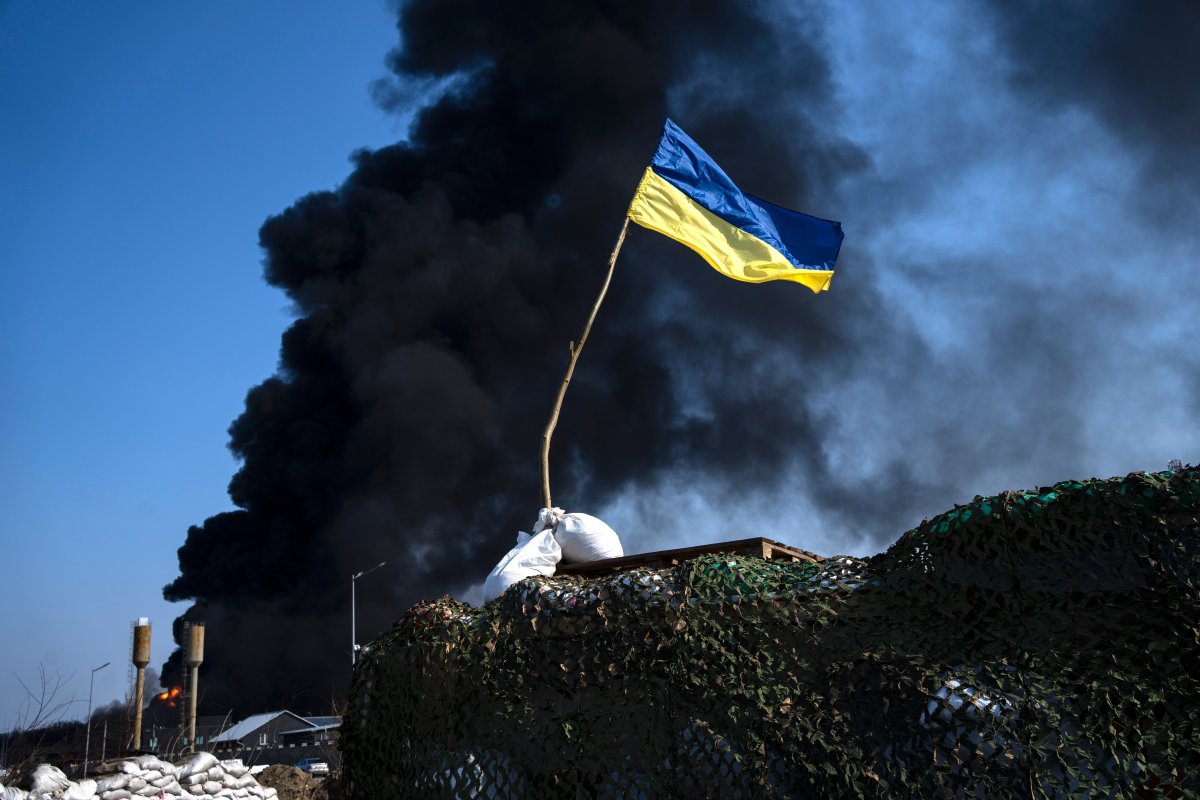The cost of conflict with Russia will inevitably be “very high” as the world becomes more dangerous, says Canada’s ambassador to the United Nations.

In an interview with The West Block‘s guest host Eric Stephenson, Bob Rae said rising defence spending and other costs will be something Canadians need to confront amid the continued global dangers in the wake of Russia’s violent and unprovoked invasion of Ukraine.
“I think that’s an inevitability given the the nature of some of the crises that we’re facing around the world, and that’s something we have to face up to as Canadians,” he said.
“It’s going to be more expensive for us living in the world than it was before, because the cost of conflict is very high. And we’re not living in an easy world at the moment,” Rae added.
“The world is a difficult place right now.“
Russia’s invasion of Ukraine is now in its second month, but has appeared to stall in many areas as Ukrainian defenders mount a fierce resistance that has been praised around the world.
But the slow advance by Russia has sparked fears that Russian President Vladimir Putin may turn to even more violent methods, including chemical, biological or nuclear attacks, to gain momentum.
Over recent weeks, the savagery of Russian attacks targeting civilians has grown and Ukrainian officials have alleged that attacking troops used white phosphorous munitions — a banned chemical weapon.
Hundreds of civilians are dead, even as the numbers fluctuate amid shifting battleground dynamics.

Among the worst of the violence centres on the besieged port city of Mariupol, where civilians have been trapped with dwindling water and food for weeks. International demands for safe passage for civilians as well as aid access into areas being devastated by the invasion continue to grow.
Last week, members of the United Nations General Assembly overwhelmingly voted to isolate Russia. The non-binding motion won support from three-quarters of members, while only five supported Russia.
The rest abstained.
That motion demanded humanitarian access as well as the protection of hospitals and civilian infrastructure, medical workers, civilians, aid workers and journalists.
- Trudeau tight-lipped on potential U.S. TikTok ban as key bill passes
- Canadian man dies during Texas Ironman event. His widow wants answers as to why
- Hundreds mourn 16-year-old Halifax homicide victim: ‘The youth are feeling it’
- On the ‘frontline’: Toronto-area residents hiring security firms to fight auto theft
In addition, the motion demanded an end to Russian sieges of cities including Mariupol.
Rae billed the decision by China to abstain rather than vote in support of Russia as “significant,” and said said securing a ceasefire is vital.
But the stakes for Putin in doing so are enormous, said a former American ambassador to NATO.
“He has taken an enormous risk launching this military invasion against Ukraine. It’s not going well,” said Kurt Volker, who also served as the U.S. Special Representative for Ukraine until 2019.
“I don’t see how he can be defeated in Ukraine and remain as president of Russia.”
Volker said all indications so far suggest it will not be possible for Putin to win: “They simply don’t have the means to do it.”
“This means he’s in a very dangerous and desperate position and could very well resort to weapons of mass destruction or something else, trying to pull a rabbit out of the hat to see if he can still survive,” he added.
“We have to warn him against that.”
U.S. President Joe Biden warned last week that a chemical attack on Ukraine by Russia “would trigger a response in kind.”
But American leaders have warned against the use of chemical weapons before, only to face accusations of failing to live up to their warnings. Former president Barack Obama described the use of chemical weapons by Syria’s dictator Bashar al-Assad as a “red line” in 2012.
Assad, who received military support from Russia during the Syrian Civil War, went on to use sarin gas repeatedly during the conflict, according to the Organization for the Prohibition of Chemical Weapons as well as the Berlin-based Global Public Policy Institute.
Obama deferred a proposal to launch military operations in Syria to the U.S. Congress, which voted down the idea. The U.S. did not take military action against Assad following that vote.
Assad remains in power.

Volker also suggested that despite NATO leaders categorically and repeatedly ruling out a no-fly zone in Ukraine, there may be value in limited forms of doing so.
He pointed to “the possibility of a limited no-fly zone for humanitarian purposes, perhaps over Kyiv and west, in order to make sure that civilians do not have the the fear of aircraft dropping bombs on them from overhead, and that humanitarian aid can get there safely.”
“Another idea that’s been proposed recently is military escort of humanitarian airlifts — also something I think worth looking at,” said Volker, adding NATO should also consider coordinating military gear on the border with Poland that Ukraine can come and drive across the border for their own use.
“We need to start laying out some of these lines for Putin so that we diminish his appetite for escalation as his forces are losing in Ukraine.”





Comments